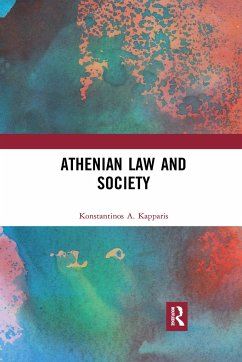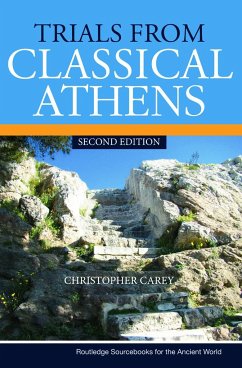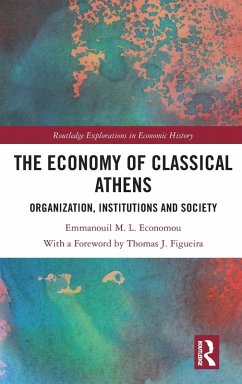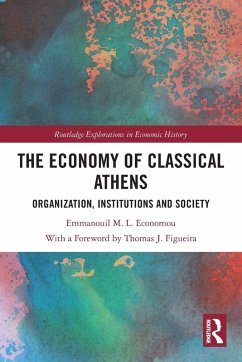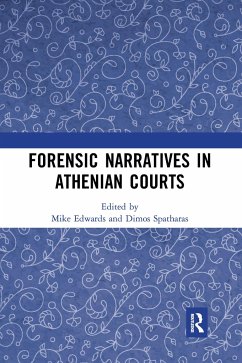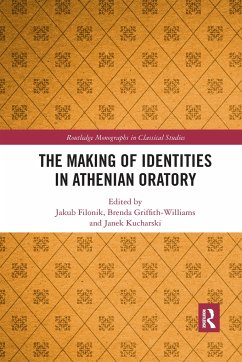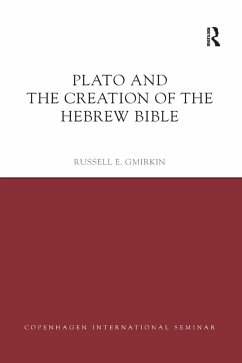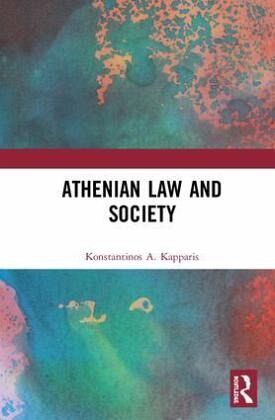
Athenian Law and Society
Versandkostenfrei!
Versandfertig in 6-10 Tagen
165,99 €
inkl. MwSt.
Weitere Ausgaben:

PAYBACK Punkte
83 °P sammeln!
Athenian Law and Society focuses upon the intersection of law and society in classical Athens, in relation to topics like politics, class, ability, masculinity, femininity, gender studies, economics, citizenship, slavery, crime, and violence. The book explores the circumstances and broader context which led to the establishment of the laws of Athens, and how these laws influenced the lives and action of Athenian citizens, by examining a wide range of sources from classical and late antique history and literature. Kapparis also explores later literature on Athenian law from the Renaissance up t...
Athenian Law and Society focuses upon the intersection of law and society in classical Athens, in relation to topics like politics, class, ability, masculinity, femininity, gender studies, economics, citizenship, slavery, crime, and violence. The book explores the circumstances and broader context which led to the establishment of the laws of Athens, and how these laws influenced the lives and action of Athenian citizens, by examining a wide range of sources from classical and late antique history and literature. Kapparis also explores later literature on Athenian law from the Renaissance up to the 20th and 21st centuries, examining the long-lasting impact of the world's first democracy.
Athenian Law and Society is a study of the intersection between law and society in classical Athens that has a wide range of applications to study of the Athenian polis, as well as law, democracy, and politics in both classical and more modern settings.
Athenian Law and Society is a study of the intersection between law and society in classical Athens that has a wide range of applications to study of the Athenian polis, as well as law, democracy, and politics in both classical and more modern settings.




